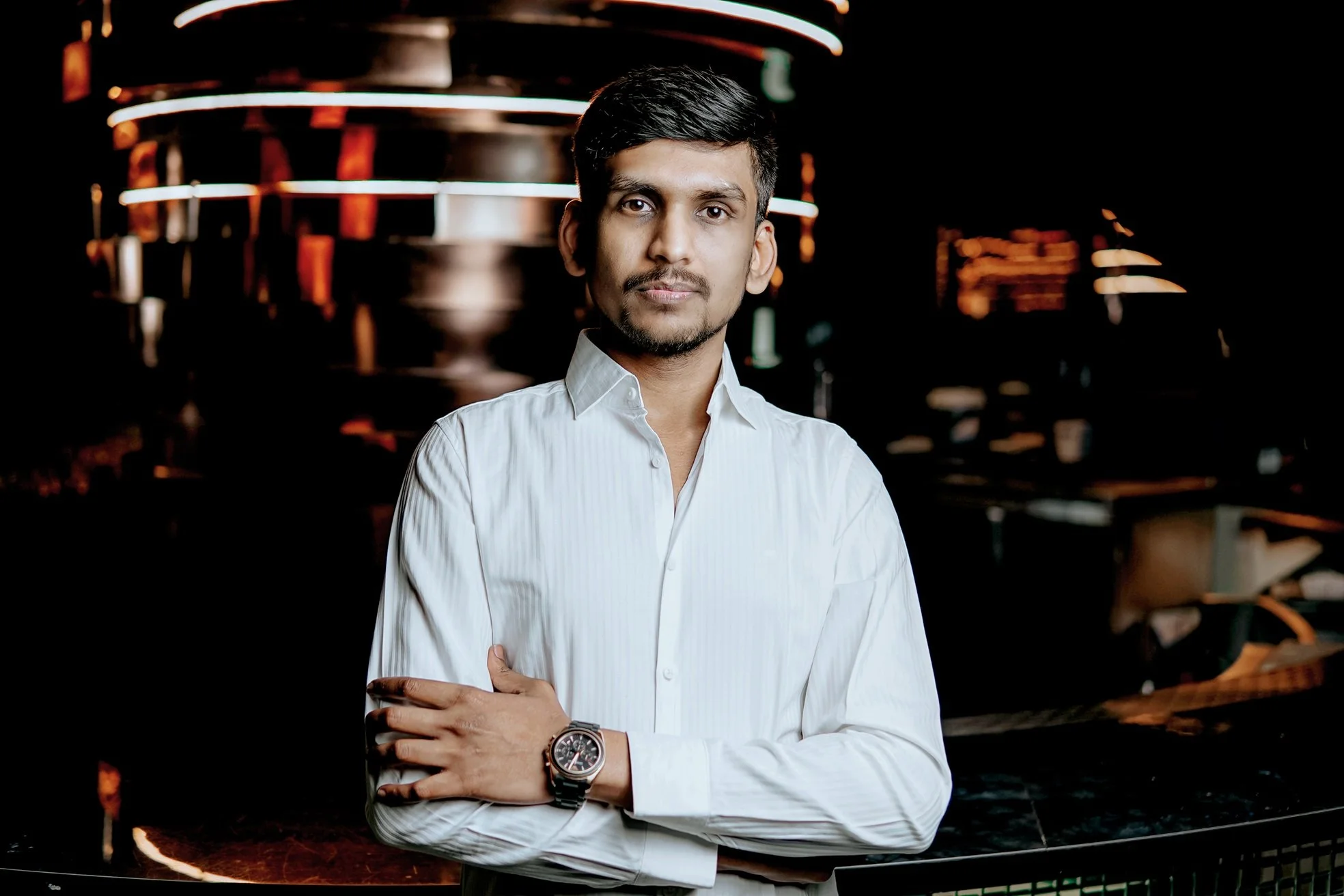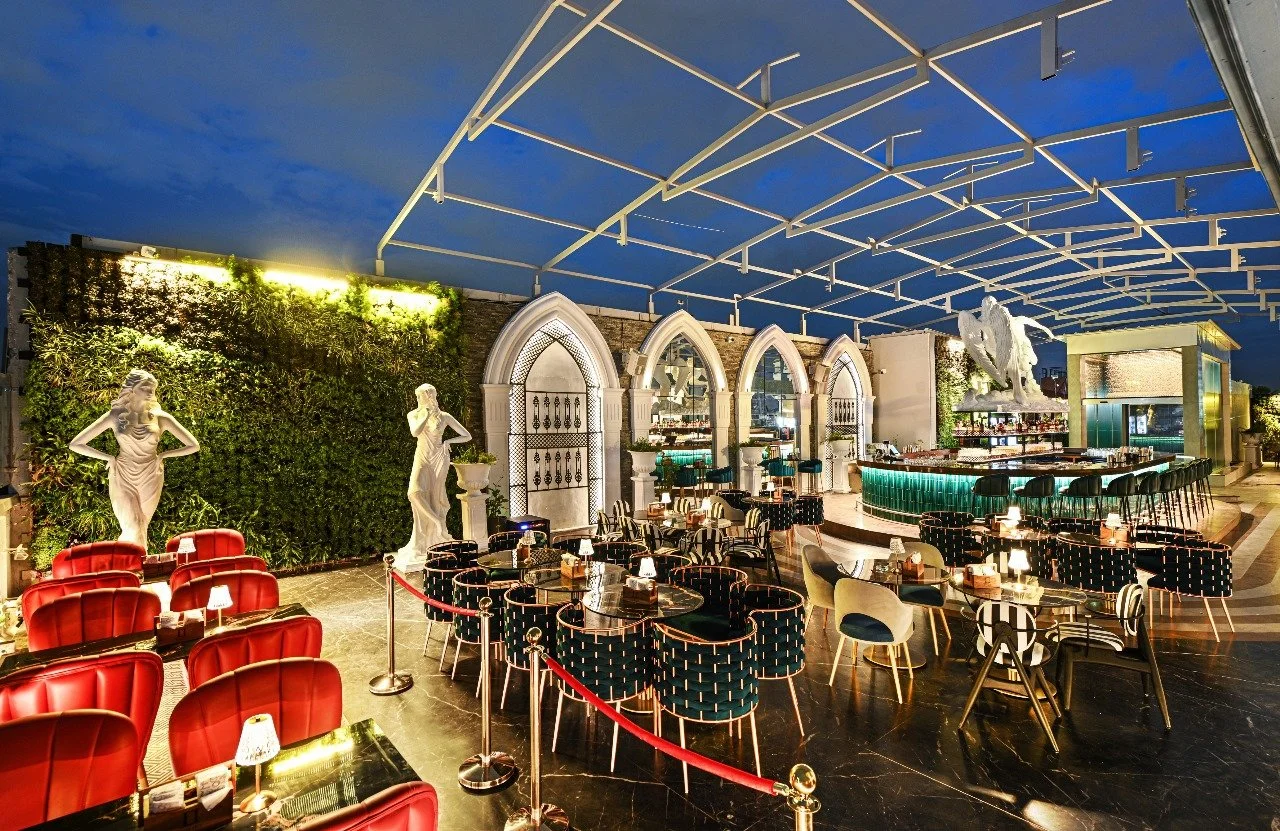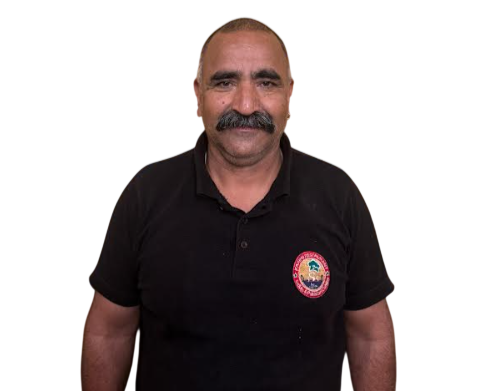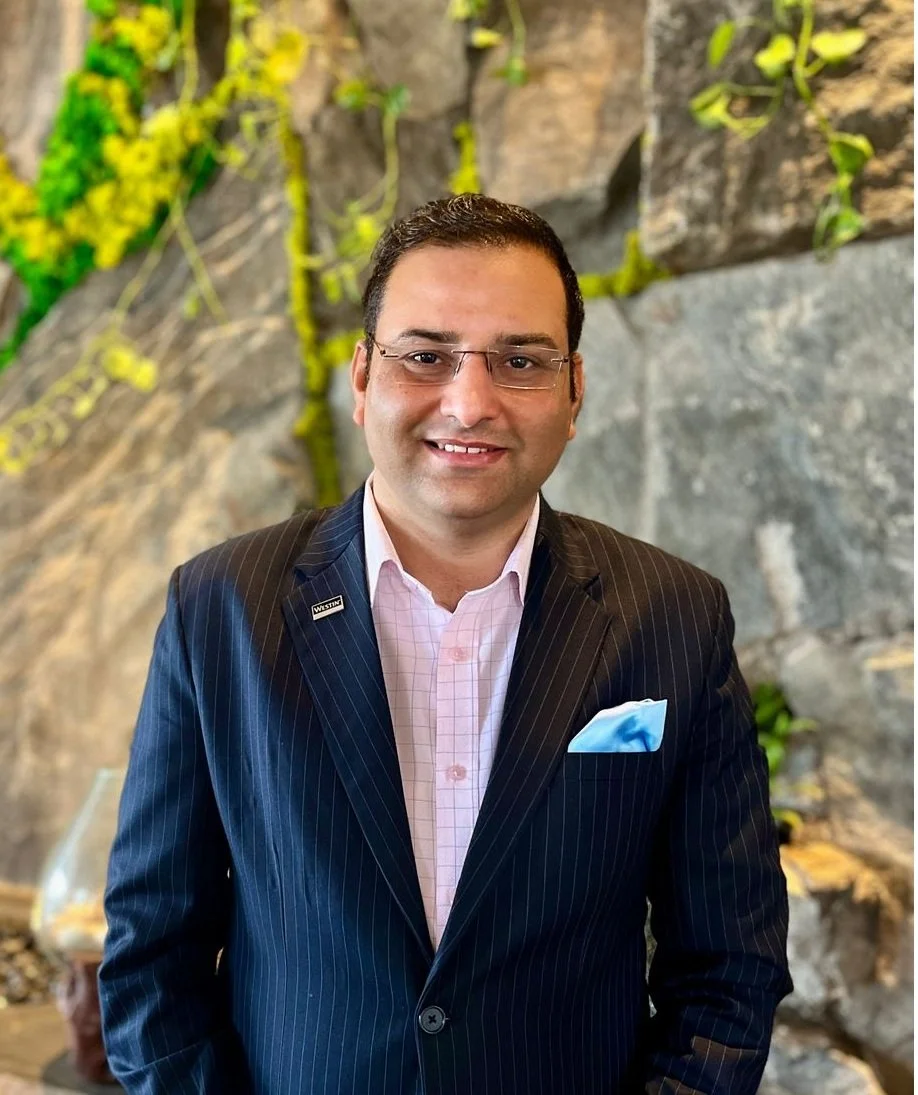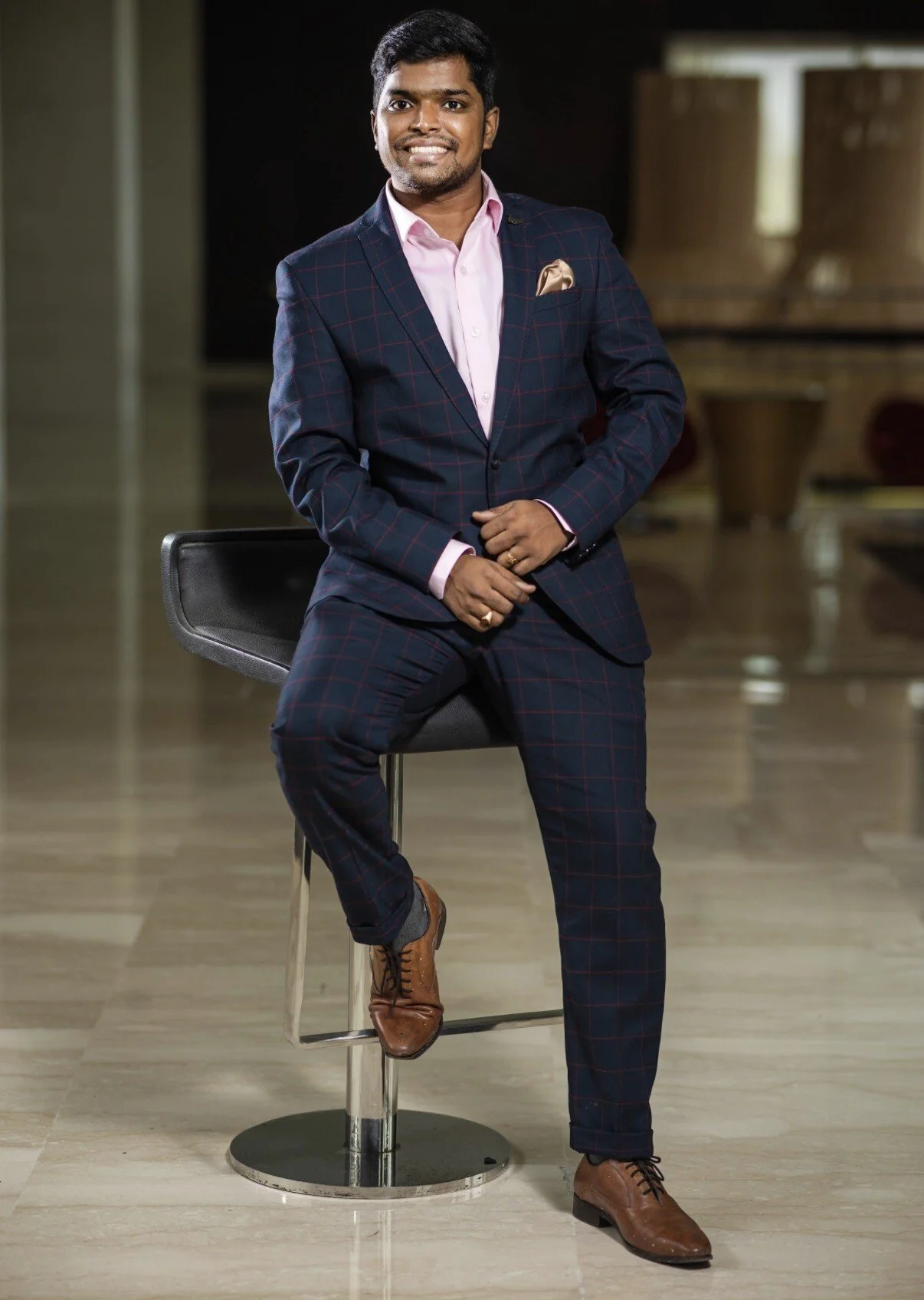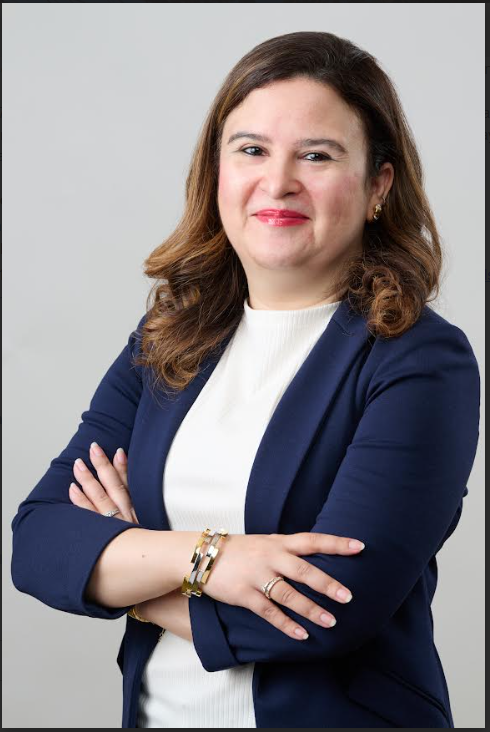Exclusive Interview | Thejus Shivarama, Founder and CEO of Juliet, 2Moons and Minx
/“In the early days, I was just passionate—I wasn’t yet experienced. I trusted the wrong advisors, hired the wrong teams, spent money where I shouldn’t have, and ignored my gut. The result? A heavy financial hit and a lot of emotional turmoil. But those were also the most powerful years of learning.”
Your journey from Serene Mist Resort to Juliet and 2Moons has been remarkable. What inspired you to enter the hospitality industry, and how has your vision evolved?
Hospitality came to me like a calling. My first venture, Serene Mist Resort in Chikmagalur, was a boutique property nestled in a coffee estate. I wasn’t from the industry at the time, but I loved hosting people, creating moments, and watching guests leave with a smile. That experience gave me my first taste of what it meant to run a hospitality business—more than rooms or food, it was about emotions, trust, and creating a sanctuary. From there, my journey to Juliet and 2Moons has been about deepening that understanding. Over time, I’ve realized that people crave spaces that feel honest, that feel curated with thought and soul. My vision evolved from simply running a business to building brands that stand for authenticity and care. Each of my spaces has its own personality, but they’re all grounded in the idea that hospitality should make you feel something.
“Race with cheetahs, not with horses”—can you elaborate on this philosophy and how it influences your business approach?
That phrase really defines how I look at business and growth. Horses are strong, yes, but cheetahs are agile, strategic, and laser-focused. I don’t believe in joining the herd just for the sake of competing. I believe in carving out our own lane—and then owning it with speed and precision. For example, when everyone was building copy-paste resto-bars, I chose to build brands like Juliet and now Minx—concept-driven spaces with strong identity and storytelling. I move fast, but I move with clarity. This mindset helps me make bold decisions—be it choosing a location others overlook, designing a format that’s risky but fresh, or trusting my gut over trends. I’d rather be a cheetah in a quiet forest than a horse in a crowded race.
Minx, your upcoming craft cocktail club, aims to be Bangalore’s first true cocktail club. What gaps in the market are you addressing, and what can we expect from this new venture?
Minx is my answer to a very specific gap I’ve observed—Bangalore has no true cocktail club. We have bars that serve cocktails, sure, but not many spaces that respect the craft of mixology, where cocktails are the hero—not the sideshow. Minx is a place where the music, the mood, and the menu all work in sync to celebrate that craft. The space is inspired by international cocktail lounges—intimate, high-concept, and chic. We’re focusing on layered drinks, rare spirits, and a bar team that isn’t just technically skilled but also storytellers. The idea is to give guests an experience they can’t replicate at home—where every cocktail feels like a conversation. It’s for people who are tired of loud, rushed nights and want something more refined, yet exciting. It’ll be a benchmark in Bangalore nightlife.
You’ve built the Boho Sunsets IP into a standout experience in Bangalore. What makes it unique, and how do you create such memorable guest experiences?
Boho Sunsets wasn’t born out of a business plan—it came from a mood. I wanted to recreate that feeling of a golden evening spent with music, conversation, and great food—like something out of a travel journal. The vibe is carefully orchestrated but feels organic: from the earthy, laid-back decor to the carefully selected indie music to the bespoke cocktails that match the season. We curate every little detail—the lighting, the scents, the seating angles—to create a feeling of escapism within the city. What makes Boho Sunsets unique is that it’s not just an event—it’s a ritual. People now plan their weeks around it. The idea is to slow down the rush and bring back emotional luxury. That’s the real experience we sell—pause, presence, and connection.
Personalization is a key theme in your approach. How do you balance customer requests with maintaining a strong brand identity?
I always say—hospitality is about flexibility, but identity is about consistency. You need both. If someone walks into Juliet and asks for something off-menu, and we can do it without compromising the experience, we absolutely will. We’ve served chai during dinner service, made rasam rice in an Asian kitchen, or recreated nostalgic dishes for guests celebrating personal milestones. Those things make people feel seen. But at the same time, we don’t dilute what we stand for. Each brand of mine—Juliet, 2Moons, Minx—has a soul and a story. We don’t bend our concept for every trend or demand. We allow space for guests to feel at home while holding our own unique point of view. It’s a balance we’ve worked hard to master.
Your early career saw challenges, including financial setbacks and misguidance. What were the biggest lessons you learned from these struggles?
In the early days, I was just passionate—I wasn’t yet experienced. I trusted the wrong advisors, hired the wrong teams, spent money where I shouldn’t have, and ignored my gut. The result? A heavy financial hit and a lot of emotional turmoil. But those were also the most powerful years of learning.
I learned to read numbers, to audit operations, to question expertise—even when it comes from a “consultant”. I became hands-on—not because I wanted to micromanage, but because I realized the importance of understanding your own business at the deepest level. I also learned the value of patience and of staying grounded during a crisis. Those failures didn’t break me—they rebuilt me.
Juliet and 2Moons are now among the top hospitality brands in Bangalore’s CBD. What strategies helped you build such strong brand recognition in a competitive market?
We focused on creating meaningful spaces, not just photogenic ones. That’s a huge differentiator. Juliet isn’t just a pretty place—it’s a story of slow romance, of thoughtful design and an emotional dining experience. 2Moons is our moody, bold, and free-spirited sibling. We never launched with the goal of mass marketing. Instead, we built our audience through real connections, through consistent guest experiences, and by nurturing our community. We prioritized authenticity over virality. Also, we didn’t try to be all things to all people. We created strong, clear brand personalities, and then we stood by them. That clarity has helped guests relate to us and stay loyal.
You emphasize a leadership style based on freedom and learning. How do you cultivate a team culture that encourages ownership and innovation?
I don’t believe in top-down leadership. I believe in collaborative building. My team members aren’t just employees—they’re co-creators of the brand. From our chefs to our servers, I make sure every team member knows why we do what we do, not just how. I encourage mistakes, because that’s where the growth happens. If someone wants to try a new drink, a dish, a process—we test it. We discuss. We improve. That openness builds ownership. It also creates a safe space for innovation.
When people feel respected and trusted, they don’t just show up for a job—they show up with their soul. And that reflects in the guest experience.
Your businesses prioritize guest satisfaction over rigid industry norms. Can you share a memorable instance where this philosophy truly made a difference?
Once, a guest walked in late—tired, jet-lagged, and clearly not in the mood for anything elaborate. He asked for rasam rice—something simple, soothing, and completely off-menu. The kitchen paused for a second, then decided to make it happen. We served it beautifully, just the way he remembered from home. He was moved. A few days later, he returned with his entire team for a celebratory dinner. That moment reminded us: people never forget how you made them feel. That one act of going beyond the norm brought us repeat business, word-of-mouth publicity, and, more than anything, a guest who now feels like family.
Looking ahead, where do you see Bangalore’s hospitality scene in the next five years, and how do you plan to stay ahead of the curve?
Bangalore is evolving at lightning speed—guests are more aware, more traveled, and more demanding, but in a good way. They don’t just want a meal—they want a mood, a memory, a moment. I see the city moving towards hyper-local experiences, intimate venues, wellness-focused menus, and personalization at scale. I also think sustainability and storytelling will play a bigger role.
My approach will continue to be simple—listen, adapt, and innovate. I don’t believe in chasing trends blindly, but I do believe in creating culture. That’s how I plan to stay ahead—by being authentic in an industry that’s becoming increasingly manufactured.
At Hospemag Trainers Guild, we believe in sharing knowledge to elevate the industry. If you could conduct a training session, what topics would you be most passionate about teaching?
I’d love to conduct a session on “Emotional Intelligence in Hospitality.” We don’t talk enough about intuition, empathy, and reading the unspoken. Guests won’t always tell you what they need—you have to sense it. Another session I’d love to lead would be “Fail Forward”—teaching young entrepreneurs how to bounce back from failure, and how to build strong foundations without losing soul. So many people come into this industry for the glamour, but they need to be prepared for the grind, the grit, and the growth that comes from setbacks.
What learning and development initiatives do you have in place for your team, and how do you ensure they continue growing within your organization?
We do cross-training often—bartenders spend time in the kitchen, floor managers get exposed to P&L reports, and even our stewards are encouraged to pitch F&B ideas. Every week, we do storytelling sessions, where team members share guest experiences and what they learned. It helps build perspective. We also invest in external training—from mixology workshops to soft skills programs. But most importantly, we give people room to evolve. If someone joins as a steward and shows interest in design, we explore that. We don’t box people—we build them. That’s the culture we’re proud of.

